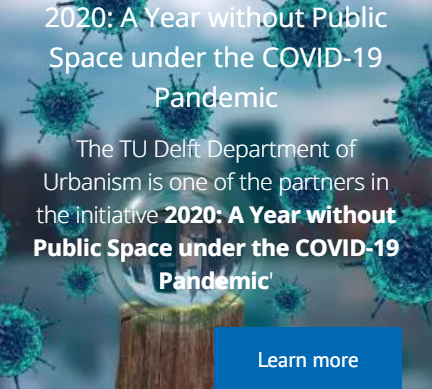Design for Values in Times of COVID19
Creating Responsible Innovations respecting Ethical and Social Values
The COVID-19 pandemic is hitting people and businesses hard. The attempt to protect people from this life-threatening disease has changed how we perceive the role of governments, businesses, and all other stakeholders in providing safe housing, sanitation, workplaces, and safe public space to name a few. These are issues architecture, urban design, and spatial planning must address.
In order to slow down contagion, people have been asked to wash their hands frequently, to keep physical distance, and to self-isolate. These actions are impossible to take when people don’t have access to decent accommodation, or when they need to deal with overcrowded or small and low-quality housing in precarious urban contexts. In many countries around the world, homelessness is a critical problem. More than one billion people (1/3 of all urban dwellers) live in overcrowded and underserved slums, with very poor sanitation and no access to green areas.
Refugee camps in conflict areas exhibit similar challenging conditions. People living in safer environments also experience important spatial changes. They need to spend more time at home and redesign their dwellings for quarantine at a time of social distancing, leading to diverse challenges for people living alone or others dealing with multi-generational co-living and working at the home office in tight quarters over long periods of time.
Spatial planning, a discipline that has emerged as a response to public health issues, needs to find a new balance between the values of density and sustainability, and those of individual wellbeing and prevention of the spread of diseases. Shops and businesses as well as public transport and public spaces have adapted to social distancing measures.
If allowed to be outdoors, people claim public space in a different way and seek for places where social distancing is possible. Changing values in the public sphere, as well as changing values affecting our homes, farms, offices, and industry will challenge architecture and urban design for decades if not centuries to come.
In view of the pandemics and other grave global challenges like climate change, energy transition, and democratic erosion, architecture, urban design, and spatial planning will continue to play a crucial role, as our cities and buildings will need to go through important transitions for our cities and communities to achieve social, economic and environmental sustainability. Designers need to find a way to create healthy living conditions and facilitate a green circular economy through spatial structures. They also need to imagine new built environments and public spaces where people can still encounter those who are different from them, to discuss and rethink our societal challenges.
Architecture, urban design, and spatial planning have to find long-term solutions that respond to health needs and (re-)inform design but also avoid further spatial, social, gendered, or ethnic segregation. Shared values of spatial development need to drive resilient practices
More:
Delft Design for Values / COVID-19
Follow:
Delft Design for Values / Public Space in Times of COVID-19 Pandamic




